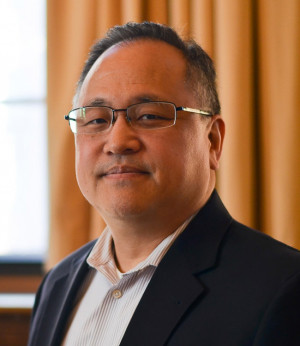CTIC works to bring billions online
 A new project from CTIC and Professor Christopher Yoo aims to find the best ways to connect the four billion people worldwide without internet access.
A new project from CTIC and Professor Christopher Yoo aims to find the best ways to connect the four billion people worldwide without internet access.
A new project from Penn Law’s Center for Technology, Innovation and Competition (CTIC) is studying the best ways to provide Internet access to the half of the world’s people who are not online.
“1 World Connected: Data Driven Research to Bring Billions Online” is a three-year, three-phase project to analyze which innovative approaches to increasing Internet connectivity are most effective and efficient. The initiative is in conjunction with a new Dynamic Coalition established under the UN-sponsored Internet Governance Forum, in partnership with NGOs, companies, and governments around the world.
“Internet access provides real-world benefits in terms of economic growth, education, and global health, but more than half the world’s population remains offline,” said Professor Christopher Yoo, John H. Chestnut Professor of Law, Communication, and Computer & Information Science and CTIC’s founding director. “While there are many experiments with new ways to introduce internet access to those around the world who need it, the work is being done piecemeal. 1 World Connected will gather and share vital data on the best, most economic methods to increase access.”
Yoo and CTIC will also be participating in an event on October 5–6 titled, “Global Connect Stakeholders: Advancing Solutions,” sponsored by the Institute of Electrical and Electronics Engineers (IEEE) in collaboration with the Internet Society, the World Bank, and People Centered Internet, in Washington, D.C.
During the second phase of the project CTIC will collect and analyze empirical evidence, such as the number of people who gain internet access from various initiatives and their cost effectiveness. In the project’s final phase, CTIC will publish and disseminate their findings.
CTIC is dedicated to promoting foundational research that aims to shape the way legislators, regulatory authorities, and scholars think about technology policy, intellectual property, privacy, and related fields. Through major scholarly conferences, symposia, faculty workshops, and other activities, CTIC is committed to providing a forum for exploring the full range of scholarly perspectives on these issues.
